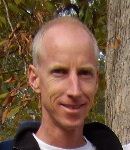
Adjunct Professor
Coordinator, Master of Sustainable Development Practice Program
Focus Area: Global Environmental and Social Change
Areas of Specialization
- Cultural Ecology
- Protected areas management
- Indigenous territories and community mapping
- Landscape and wildlife conservation
- Community wildlife management
- Central Africa, Latin America
Educational Background
- PhD in Geography / Tropical Conservation and Development / African Studies, University of Florida, 1995
- M.A. in International Economics / Social Change and Development, Johns Hopkins University School of Advanced International Studies, 1989
- B.A. in International Relations, Carleton College , 1986
Recent Courses:
- AFS 4935: African Environmental Issues
- GEA 3600: Geography of Africa
In My Own Words
Dr. Andrew Noss is a cultural ecologist, focusing on human-environment interactions. He grew up in Cameroon and Nigeria. For his dissertation research at UF he studied Ba Aka subsistence and local bushmeat hunting in the Dzanga Sangha Reserve in the Central African Republic. Subsequently he spent 15 years with the Wildlife Conservation Society in Bolivia and Ecuador, implementing community wildlife and landscape conservation programs, emphasizing close collaboration among national park authorities, local governments, indigenous and campesino organizations and communities, universities, and conservation and development NGOs. From 2007-2011 he supervised the “Integrated Management of Indigenous Lands” project that included partnerships with 20 indigenous organizations and local and international NGOs in Ecuador and Colombia. Most recently he advised WCS and the national park service INDEFOR in Equatorial Guinea on management plans for protected areas to be implemented with support from US oil companies.
His landscape conservation programs have emphasized participatory research, community mapping, institutional strengthening, and capacity-building for indigenous and local technicians. The programs integrated an interdisciplinary team of geographers, anthropologists, biologists, veterinarians, educators, protected area managers, hunters, local indigenous researchers, community members, and leaders of indigenous organizations. He has published papers on protected area and indigenous territory management, community wildlife management, sustainable wildlife use, endangered species, one world/one health, and camera trap survey methods.
Recent Publications
Romero‐Muñoz, A., Bleyhl, B., Benítez‐López, A., Camino, M., Decarre, J., Nanni, A. S., … & Kuemmerle, T. (2025). Hunting and Habitat Destruction Drive Widespread Functional Declines of Top Predators in a Global Deforestation Hotspot. Diversity and Distributions, 31(2), e70003.
Aliaga-Rossel, E., Quiroga, C. J., Velez-Liendo, X., Romero-Muñoz, A., Porcel, Z., Wallace, R. B., … & Noss, A. (2021). Distribution, Ecology and Conservation of Xenarthra in Bolivia—Update to 2021. Edentata, 22, 16-37.
Romero-Muñoz, A., A. Benítez-López, D. Zurell, M. Baumann, M. Camino, J. Decarre, H. del Castillo, A.J. Giordano, B. Gómez-Valencia, C. Levers, A.J. Noss, V. Quiroga, J.J. Thompson, R. Torres, M. Velilla, A. Weiler & T. Kuemmerle (2020). Increasing synergistic effects of habitat destruction and hunting on mammals over three decades in the Gran Chaco. Ecography, 43(7), 954-966.
Santos, P. M., Bocchiglieri, A., Chiarello, A. G., Paglia, A. P., Moreira, A., de Souza, A. C., … & Fischer, E. (2019). Neotropical Xenarthrans: a data set of occurrence of xenarthran species in the Neotropics. Ecology 100(7): e02663.
Kuemmerle, T., Altrichter, M., Baldi, G., Cabido, M., Camino, M., Cuellar, E., … & Zak, M. (2017). Forest conservation: remember Gran Chaco. Science, 355(6324), 465-465.
Quiroga, V. A., Di Blanco, Y. E., Noss, A., Paviolo, A. J., & Di Bitetti, M. S. (2017). The giant armadillo (Priodontes maximus) in the Argentine Chaco. Mastozoología neotropical, 24(1), 163-175.
Olivero, J., Fa, J. E., Farfán, M. A., Lewis, J., Hewlett, B., Breuer, T., … & Nasi, R. (2016). Distribution and numbers of Pygmies in Central African forests. PloS One, 11(1), e0144499.
Quiroga, V. A., Noss, A. J., Paviolo, A., Boaglio, G. I., & Di Bitetti, M. S. (2016). Puma density, habitat use and conflict with humans in the Argentine Chaco. Journal for Nature Conservation, 31, 9-15.
Perz, S., Araujo, J., Noss, A., & Roman, F. (2017). Temas Compartidos y Perspectivas Diferentes en la Amazonía Andina Cambiante. Biodiversidad Amazónica Vol 5, 5(5).